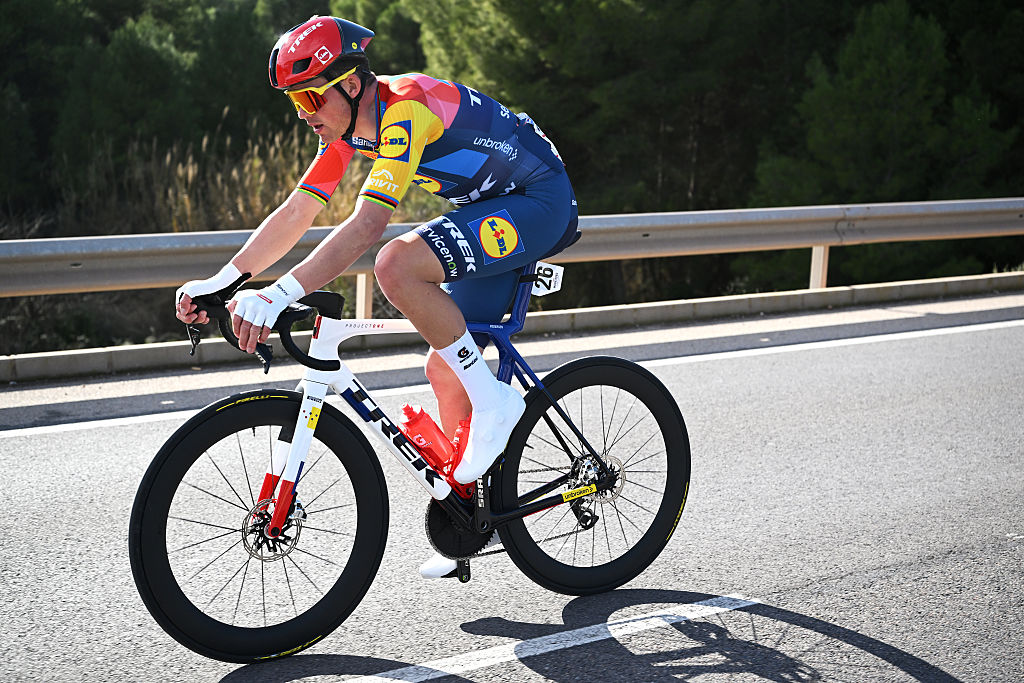Lockdown could lead to faster Tour de France, predicts Sunweb director
'You could also see guys running out of legs in the last week'

The latest race content, interviews, features, reviews and expert buying guides, direct to your inbox!
You are now subscribed
Your newsletter sign-up was successful
The postponed 2020 Tour de France may record faster times than recent editions thanks to the mandated suspension of competition, Sunweb sports director Matt Winston has speculated.
Team Ineos, since asserting their dominance at the Tour in 2012, have operated like a locomotive train, enforcing negative racing, with their rivals either unable or unwilling to gamble everything in an effort to stop it.
Assuming the revised season runs as planned, the WorldTour peloton will only have three one-day races and two stage races (the Tour de Pologne from August 5-9 and Critérium du Dauphiné from August 12-16) to find their race legs before the Tour's Grand Départ on August 29.
The WorldTour season was suspended after Paris-Nice in March due to the coronavirus pandemic and not all riders will necessarily resume competition on an equal footing, depending on where they were situated during lockdown. The Monaco and Spain set, for example, were unable to train outdoors during lockdown while riders across other parts of Europe and the world were.
Winston said it was possible the cumulative effect, in conjunction with the UCI’s "condensed" rescheduling, may see teams contest the Tour differently to what we’ve come to expect during Ineos’ reign.
"I think guys could come into the Tour fresher than they’ve ever been because they’ve had that break where [in the past] you’re always rolling on year after year with that process," he said.
"Everyone has had a reset this year, so you potentially could see faster times because guys have approached it fresh."
The latest race content, interviews, features, reviews and expert buying guides, direct to your inbox!
However, Winston also countered that preparations for Grand Tour contenders in the immediate lead-up to the race may not be that different to previous years, where many have substituted competition for training camps.
"In the last five years, the way people have gone into the Tour, especially the Grand Tour contenders, they’ve not actually done that much racing beforehand," he said. "They’ve raced at the start of the year, then they’ve gone to altitude and then trained up until the Tour.
"I think you could also see guys running out of legs in the last week where the guys that maybe have traditionally raced a little bit more haven’t had that racing," Winston added. "Maybe they could in the last week find it a little bit grippy. It’s going to be quite interesting. We’ll see guys who are fresh and really motivated to race."
Different strategies and results may even more so play out during the early one-day races, such as Strade Bianche on August 1, Milan-San Remo on August 8 and Il Lombardia on August 15.
"It’s the same for every team. No one has been through this process before. I think all teams at this level have a really good range of expertise and guys who can look at the data and look at the numbers and see," Winston said.
"It’s going to be quite exciting in a way because everyone goes, OK, San Remo is on this weekend of this month and everyone knows exactly where it is. And then we move it. Now, everyone has got to really think in a different way. How do you come to that race?
"Like you say, it’s a 300km race and it’s on the third weekend of racing. Guys maybe have done two one-days before and you potentially could see a different finish there because who knows what people’s legs are going to be like after 300km when you’ve not really raced too much.
"For all teams it’s going to be quite an exciting challenge."
